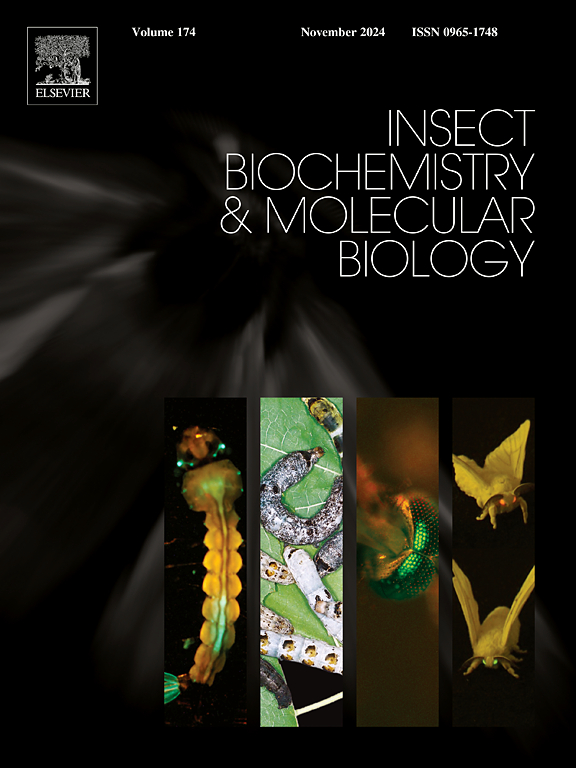Genome editing: A novel approach to manage insect vectors of plant viruses
IF 3.2
2区 农林科学
Q2 BIOCHEMISTRY & MOLECULAR BIOLOGY
引用次数: 0
Abstract
Insect vectors significantly threaten global agriculture by transmitting numerous plant viruses. Various measures, from conventional insecticides to genetic engineering, are used to mitigate this threat. However, none provide complete resistance. Therefore, researchers are looking for novel control options. In recent years with the advancements in genomic technologies, genomes and transcriptomes of various insect vectors have been generated. However, the lack of knowledge about gene functions hinders the development of novel strategies to restrict virus spread. RNA interference (RNAi) is widely used to elucidate gene functions, but its variable efficacy hampers its use in managing insect vectors and plant viruses. Genome editing has the potential to overcome these challenges and has been extensively used in various insect pest species. This review summarizes the progress and potential of genome editing in plant virus vectors and its application as a functional genomic tool to elucidate virus-vector interactions. We also discuss the major challenges associated with editing genes of interest in insect vectors.

基因组编辑:管理植物病毒昆虫载体的新方法。
昆虫媒介传播大量病毒,严重威胁全球农业。从传统杀虫剂到基因工程,各种措施都被用来减轻这一威胁。然而,没有一种措施能提供完全的抗药性。因此,研究人员正在寻找新的控制方案。近年来,随着基因组技术的进步,各种昆虫载体的基因组和转录组已经产生。然而,由于缺乏对基因功能的了解,阻碍了限制病毒传播的新策略的开发。RNA 干扰(RNAi)被广泛用于阐明基因功能,但其效果不一,阻碍了它在昆虫载体中的应用。基因组编辑有可能克服这些挑战,并已广泛应用于各种害虫物种。本综述总结了基因组编辑在植物病毒载体中的进展和潜力,以及其作为功能基因组工具在阐明病毒-载体相互作用方面的应用。我们还讨论了与编辑昆虫载体相关的主要挑战。
本文章由计算机程序翻译,如有差异,请以英文原文为准。
求助全文
约1分钟内获得全文
求助全文
来源期刊
CiteScore
7.40
自引率
5.30%
发文量
105
审稿时长
40 days
期刊介绍:
This international journal publishes original contributions and mini-reviews in the fields of insect biochemistry and insect molecular biology. Main areas of interest are neurochemistry, hormone and pheromone biochemistry, enzymes and metabolism, hormone action and gene regulation, gene characterization and structure, pharmacology, immunology and cell and tissue culture. Papers on the biochemistry and molecular biology of other groups of arthropods are published if of general interest to the readership. Technique papers will be considered for publication if they significantly advance the field of insect biochemistry and molecular biology in the opinion of the Editors and Editorial Board.

 求助内容:
求助内容: 应助结果提醒方式:
应助结果提醒方式:


